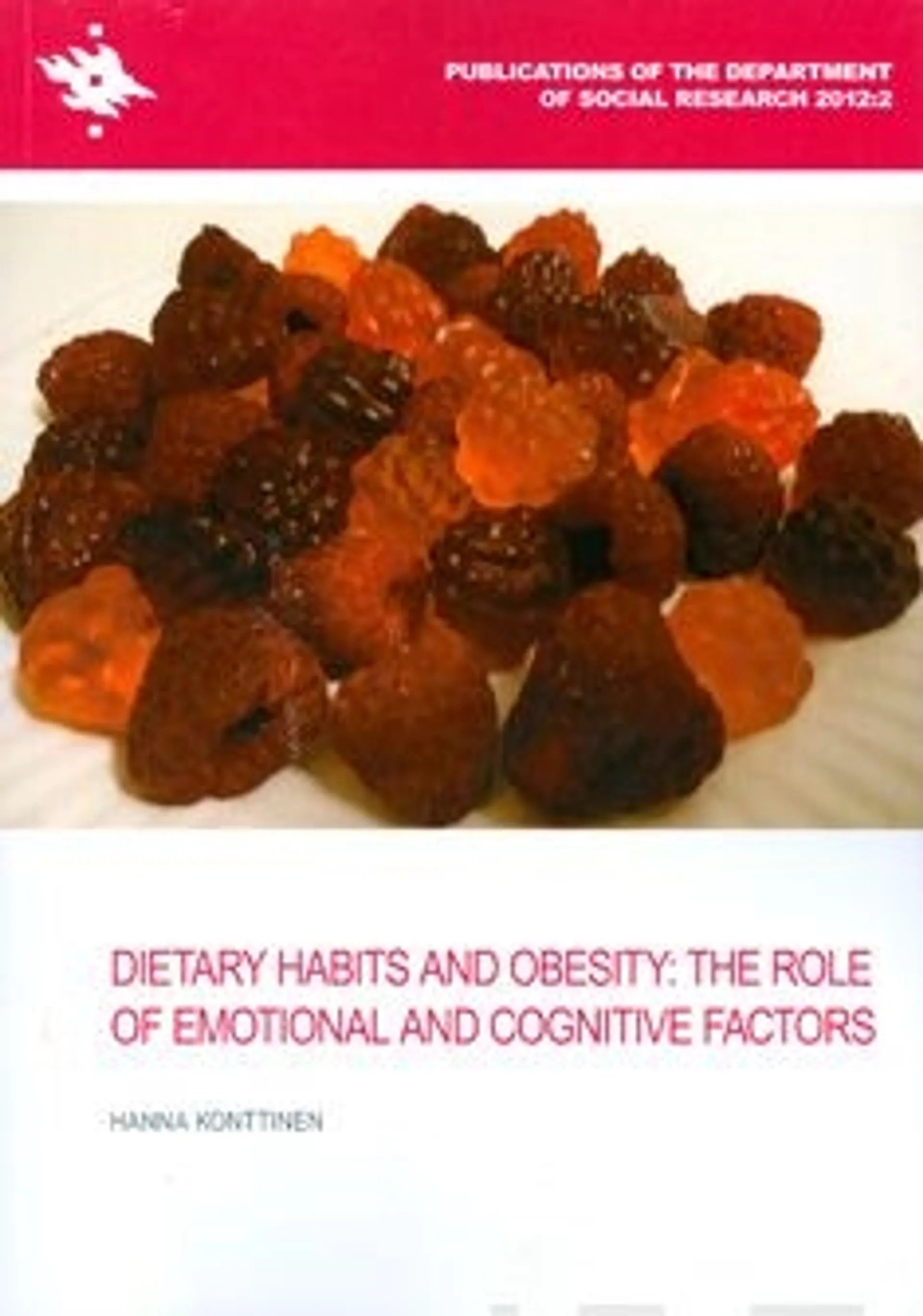The present study focuses on the associations of emotional and cognitive factors with dietary habits and obesity as well as on the role these factors play in socioeconomic disparities in diet. The study is based on a large population-based sample of Finnish adults: the participants are men (N=2325) and women (N=2699) aged 25-74 who took part in the DILGOM (Dietary, Lifestyle and Genetic Determinants of Obesity and Metabolic Syndrome) sub-study of the National FINRISK Study 2007. The results indicate that a tendency to cognitively restrict food intake is related to better weight control among obese individuals and those with dieting experiences, while among others it may function as an indicator of problems with eating and an attempt to solve them. A tendency for emotional eating and low physical activity self-efficacy are one set of mechanisms explaining the associations of depressive symptoms with less healthy dietary intake and obesity. The unhealthier dietary habits among individuals with a low socioeconomic position are partly attributable to the higher priority they place on price and familiarity and the lower priority they give on health motives in their daily food choices. The study implies that more emphasis should be placed on various psychological and social factors in weight control programmes and interventions, even though policy interventions to change the obesogenic nature of the current environment are also required.
Konttinen, Dietary Habits and Obesity
Huomaa pidempi toimitusaika
Huomaa pidempi toimitusaika
Tämä kirja on hankintatuote, joten emme valitettavasti voi antaa tarkkaa arviota toimitusajasta.
Oletko tyytyväinen tuotetietoihin?
Ovatko tuotetiedot riittävät? Jos tuotetiedoissa on puutteita tai niitä voisi muuten parantaa, anna palautetta.
